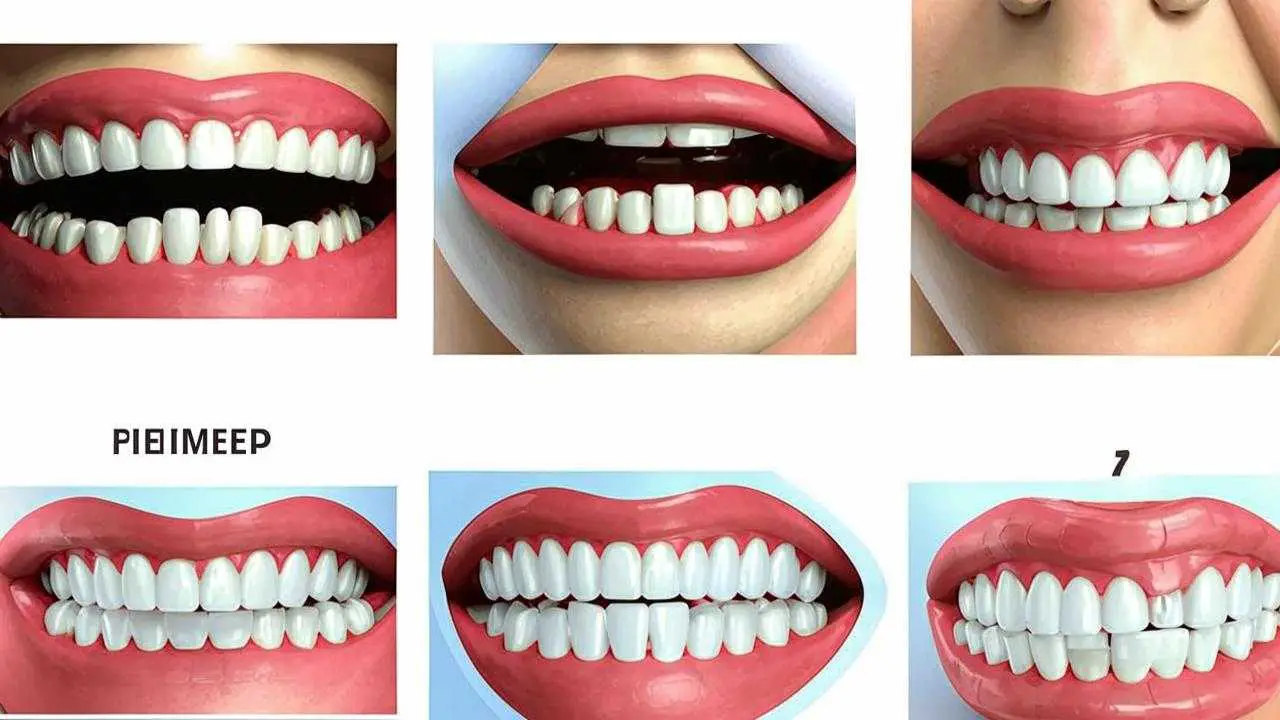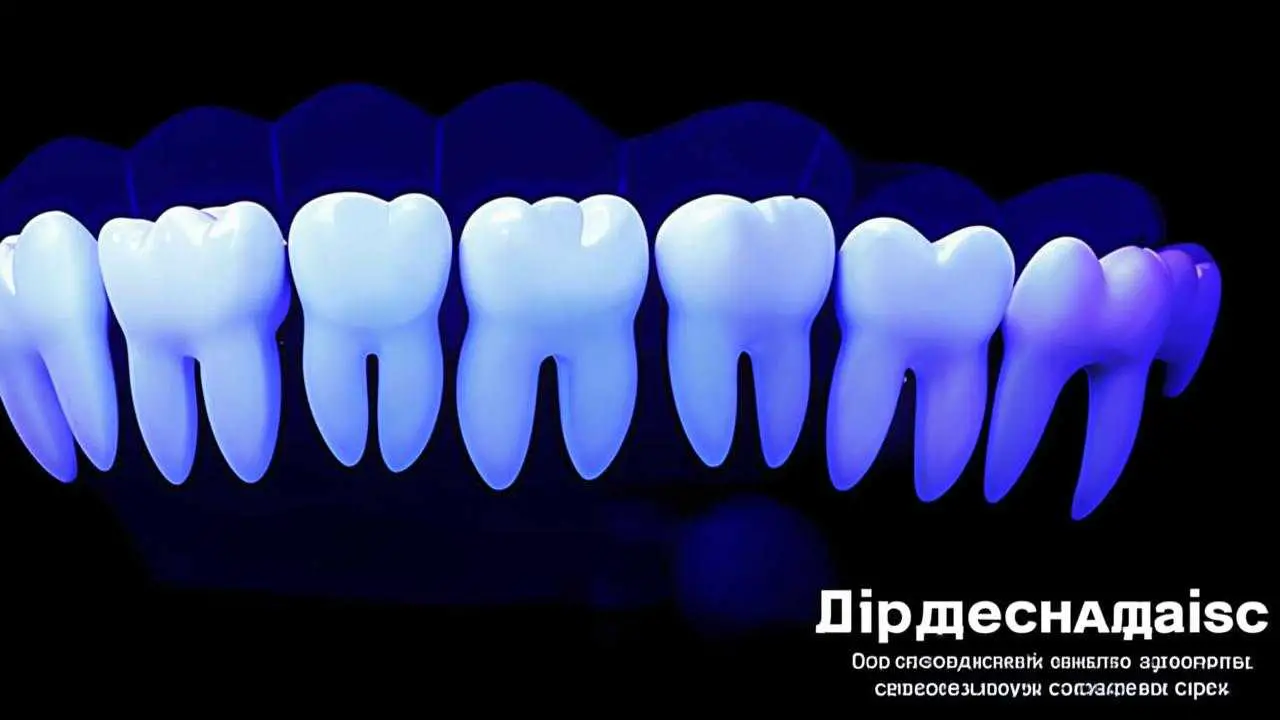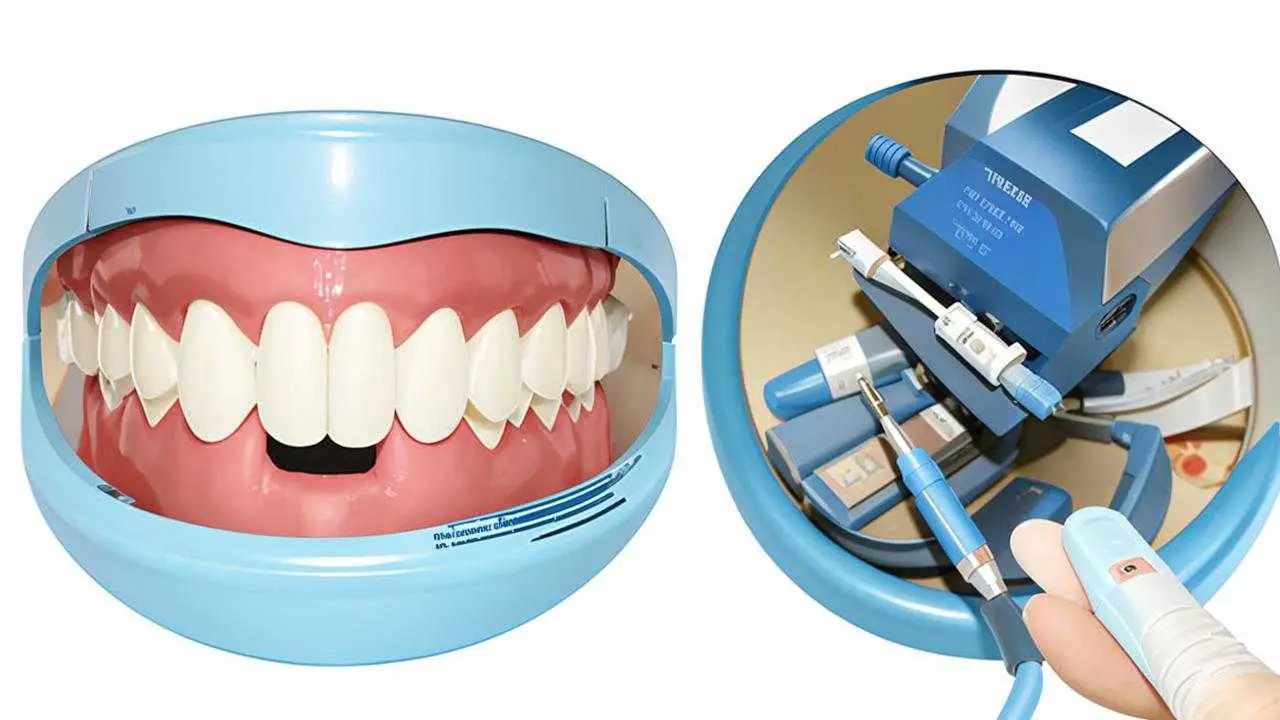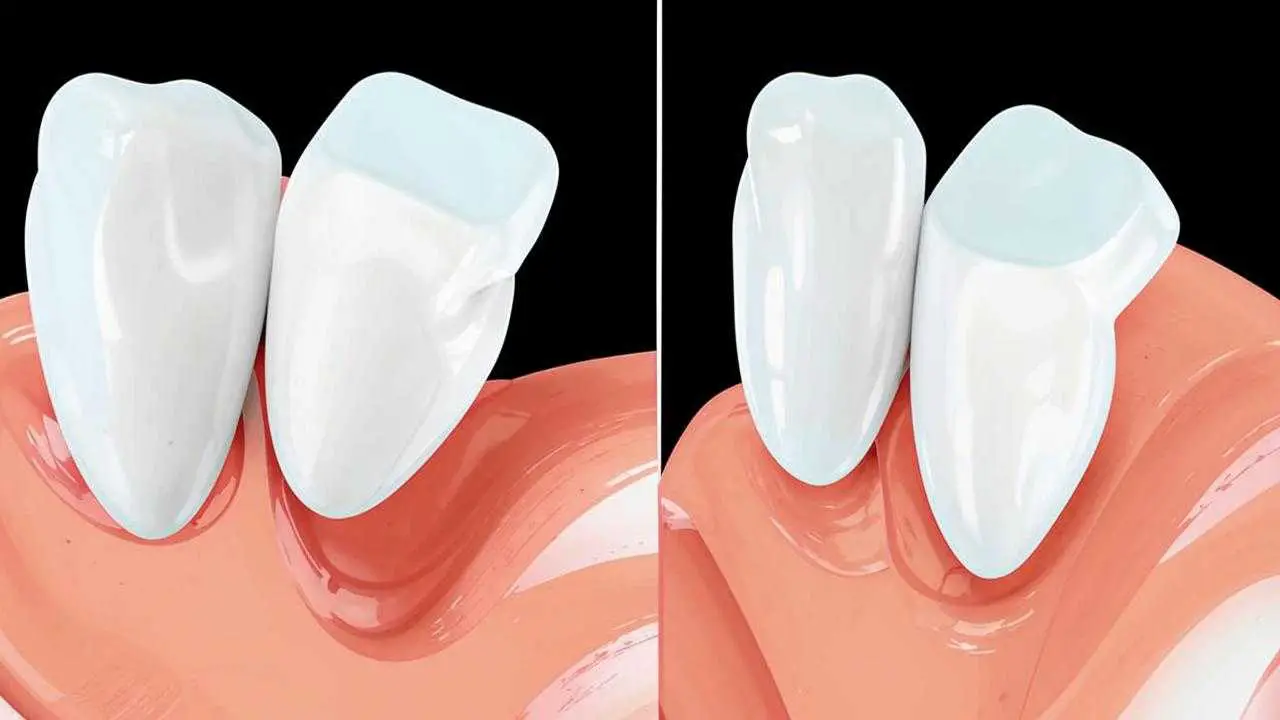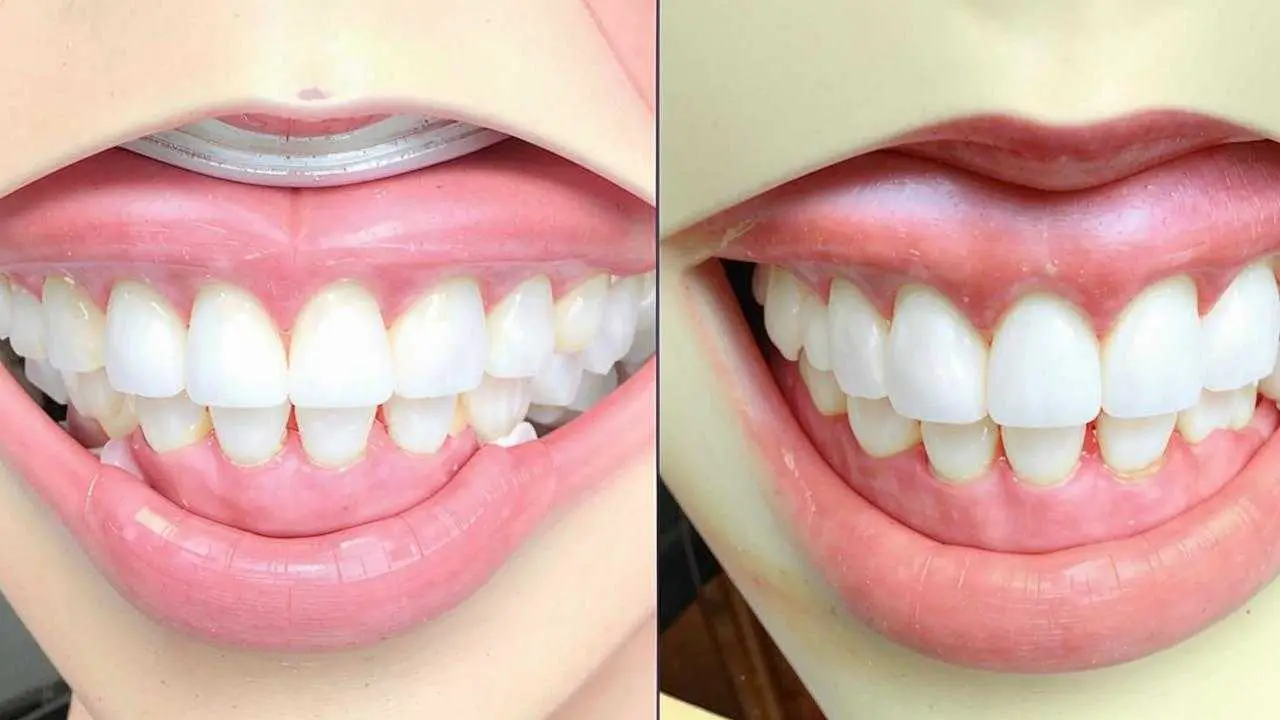Tetracycline teeth – a type of systemic enamel hypoplasia, resulting from the intake of antibiotics of the tetracycline group, when teeth, their rudiments are formed, mineralization of dental, bone tissues is underway. It is characterized by a pronounced change in the color of enamel, its structural disorder. Coloration is subjected to the cutting edges of incisors, the chewing surface of molars. The color of tetracycline teeth can vary from bright yellow to blue-brown, the severity of the shade depends on the drug, its dose, duration of intake. Not only the surface enamel layer is stained, but also deeper tissues, which causes difficulties in restoring natural whiteness.
Symptoms
- Persistent irreversible discoloration;
- pigmentation of gray, yellow, brown, brown shade;
- the entire crown or a single section is stained;
- thinning of enamel, cracks, chips;
- sensitivity to hot, cold;
- tetracycline staining of teeth is uneven, looks like transverse stripes on the enamel.
Causes of pathology
The main negative factor of medical discoloritis is the reception of tetracycline antibiotics during the formation, mineralization of dental tissues. That is, in the intrauterine period, the age of up to 8-12 years, while there is a replacement of milk units with permanent ones. On adults, the antibiotic does not have such an effect. Side effects arise due to the ability of tetracycline binding to calcium, forming stable compounds that are deposited in areas where mineralization is currently taking place – bones, teeth and their rudiments.
The severity of changes depends on the dosage of the drug, duration of administration. The higher the dosage and the longer the course of treatment, the darker the enamel, more complex its structural disorders, up to underdevelopment.
Tetracycline staining of teeth is rare, since such antibiotics for women during pregnancy and children under 8 years of age are prescribed only in individual clinical cases. Treatment with tetracycline is justified when the possible side effect of the drug is less dangerous than the consequences of the existing disease.
Features of tetracycline staining
Coloration under the influence of taking tetracycline refers to deep pigmentation of hard dental tissues. The change in color can cover the entire crown part or can be observed in separate areas of the tooth. Under the influence of light, food dyes, the color of enamel changes, becoming darker. Usually, the staining looks like a transverse band around the crown with the greatest intensity of color in the vestibular area.
For a long time, the problem of tetracycline discoloration of teeth was associated with pediatric patients. But similar pathologies occur in adults, for example, after prolonged use of minomycin in the treatment of acne.
Diagnózis
Diagnosis is based on examination, collected anamnesis, clinical examination. Since the pathology has common signs with other lesions of hard dental tissues, differential diagnosis of tetracycline teeth is carried out with the following pathologies:
- fluorosis;
- hemolytic disease of newborns;
- dentin dysplasia;
- congenital discoloritis due to Rhesus conflict in pregnancy;
- amelogenesis imperfecta;
- Stanton-Cadelon syndrome.
The dentist performs the dental examination under ultraviolet light. Under UV light, tetracycline sites fluoresce (glow). The intensity of the glow depends on the amount of accumulated drug in the tissues. This is an absolute guarantee of accurate diagnosis, because staining of teeth due to other causes, fluorescence under UV radiation does not give.
On the OPTG image, there are no specific violations. On examination, tetracycline teeth are painless, have a rough surface, there are symptoms of enamel hypoplasia.
A kezelés módszerei
Treatment of tetracycline teeth is complex, aimed at eliminating discoloration, strengthening the enamel. To replenish the mineral composition of the enamel layer, remineralizing therapy is carried out – applications of fluoride and calcium-containing preparations, electro- and phonophoresis. Usually prescribed course of 10-12 procedures, if necessary, it is repeated. For greater protection crowns are covered with fluorine varnish.
Coloring with tetracycline is an irreversible discoloration. Therefore, the second part of therapy is aimed at the aesthetic correction of teeth. To eliminate the aesthetic defect, tetracycline teeth in children are restored with a glass ionomer composition. The material is characterized by high adhesion to dental tissues, does not require surface treatment with acid-containing agents, which is important when the enamel is brittle. After application to the surface, the composite begins to release fluoride ions, which penetrate deep into the dental tissues, providing additional protection against caries.
In older age to eliminate discoloritis, bleaching, orthopedic methods of color correction – veneering, prosthetics crowns are used. Veneers and lumineers completely eliminate the aesthetic defect, regardless of the intensity of pigmentation. The teeth along the smile line(8-10 upper, 6-8 lower central units) should be restored.
Whether tetracycline teeth can be whitened
If there is minor to moderate pigmentation, it is possible to improve the aesthetics of the dentition with whitening. The end result depends on the original shade of enamel, the saturation of its original color. Given the unpredictable nature of individual shade changes during the procedure, it is very difficult to achieve a specific effect. Once the potentially achievable whiteness is achieved, all subsequent attempts to improve the result are futile.
AMAZING WHITE whitening
The method is effective for minor pigmentation. It is impossible to achieve perfect whiteness with its help, because the color change occurred from within the tissues. The procedure takes about an hour, on the surface of the teeth apply a gel with hydrogen peroxide and additional substances that help strengthen the enamel. Under the influence of a special lamp, the active substance is released, penetrates deep into the enamel, breaks down dye pigments.
ZOOM whitening
Whitening tetracycline teeth with the ZOOM system will help to improve aesthetics with a small and medium degree of pigmentation (light gray or light yellow color of teeth). With bright gray or yellow shades, ZOOM whitening can also be used, but the effect will be less pronounced. To restore the aesthetics may need more than one procedure. That is, tetracycline teeth can be brightened with whitening, but the outcome depends on the initial clinical data. Under positive clinical conditions, the enamel color after the course of treatment lightens by 10-12 tones.
Combined whitening of tetracycline teeth will give results if the enamel is colored slightly, evenly, in any one shade. With uneven, intense pigmentation (the enamel is colored in streaks of blue, brown-orange, dark gray shade), the procedure is ineffective, and relapse is observed in the shortest possible time. The doctor selects the method of restoration after a comprehensive analysis of the clinical situation.
Megelőzés
There are no specific methods of prevention. The main preventive measures are the exclusion of tetracycline drugs during the period of formation and mineralization of teeth – pregnant women, children under 12 years of age, replacing them with other antibiotics. The appointment of tetracycline is justified only in extreme cases.
